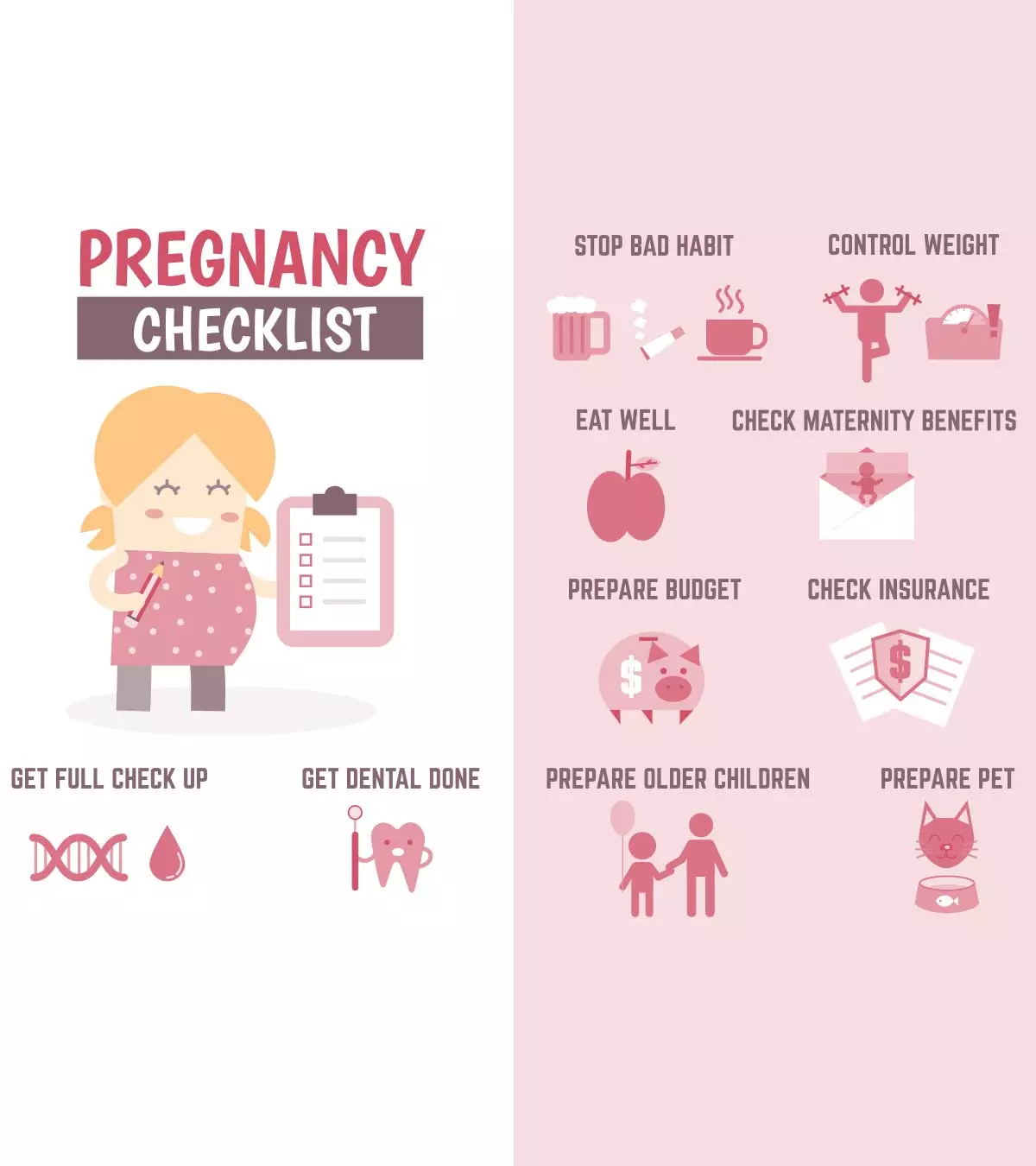

Image: ShutterStock
No relationship is devoid of arguments and differences of opinion. But sometimes, quarrels may reach peaks and trigger verbal abuse in a relationship. For example, you have a bad-tempered partner or constantly fear being humiliated or called names. That means you are in a verbally abusive relationship. Although verbal abuse does not physically hurt, it could be equally or even more emotionally painful. Read on as we share details and signs you are in a verbally abusive relationship and ways to deal with it.

What Is Verbal Abuse In A Relationship?
Verbal abuse is an emotional abuse that inflicts intense humiliation, denigration, and fear on the exposed person (1). It is a continuous criticism of one partner by the other. If your partner’s words are making you question your virtue and feel inadequate, stupid and worthless, then you are going through verbal abuse.
Verbal abuse can range from something harsh like demeaning. In verbal abuse, the abuser uses words to control and get things done their way.
However, every heated argument need not be verbal abuse. In order to identify verbal abuse, you need to differentiate it from regular arguments.
Normal Arguments Vs. Verbal Abuse
A heated argument can sometimes be mistaken as verbal abuse while verbal abuse can be ignored as a typical marital disagreement. There is a faint line between an argument and verbal abuse. Here are some traits that differentiate them:
| Regular marital arguments | Verbal abuse |
|---|---|
| The arguments are constructive, and you do not lose respect or pass nasty comments at a personal level. | An abusive partner tries to attack you with harsh words, calls you names and tries to dominate you. |
| Insensitive words are rare, and even if they are spoken out of rage, the partner apologizes and never repeats. | There is constant use of demeaning words and name-calling. |
| Partners admit when they are wrong and take into consideration your needs and feelings. | They do not accept their mistakes and are dismissive of their shortcomings. They may also tell that you have no right to express your opinion. |
| Your partner might sometimes question your goals and decisions so that you are aware of the negative consequences, but they will support you always. | They criticize your aspirations and discourage you. |
| Any difference of opinion is resolved by fair discussion and by coming to a mutual agreement. | Verbal abuse would be implications on intelligence, looks, value, status as a parent and as a person overall. |
| The arguments always stay within the couple, and they never embarrass you in front of others. | The abuser argues in front of the family and friends and deliberately shames you. |
| The tension after an argument is short-lived, and you begin talking to each other. | It does not subside and any attempts might increase the tension between the couple. |
In a verbally abusive relationship, it feels as it there is no place for equality; the abusive partner may consider their ideas and needs to be superior to those of their partner, and the partner must adjust and oblige.
If you feel that your relationship is matching with the traits mentioned in the above verbal abuse column, then it is time to look for certain signs to determine if you are being verbally abused.
Signs Of A Verbally Abusive Relationship
Even though verbal abuse is difficult to spot, there are a few signs to look for.
- You often fear disappointing your partner. Disappointments are common in a relationship. But if simple things like cooking or talking to your friends also make you fear that you might upset your spouse, it can be a sign of verbal abuse.
- They gaslight you. Gaslighting is a way of belittling your thoughts and emotions. It is manipulating your thought process. For example, you tell your partner that your neighbor has been constantly peeping into your bedroom for the last few days, and you are not liking it. Your partner has also observed the neighbor do it but simply says, ‘you are overreacting,’ or ‘relax, why do you get hyper,’ to brush aside your fears. This is not the right way to give you assurance about your safety.
- They give you the silent treatment. Verbal abuse is not always about what your partner speaks, it is also about what they do not speak. For example, your spouse has asked you to lend some money for the tenth time in a month. You tell them you do not have money as you need to meet the household expenses as well. Then your spouse will give you a silent treatment until you concede to their demand. Such silent treatments are a form of punishment or a way to manipulate you.
- They joke (insult) about you. They pass an insulting remark in front of everybody, and when you feel bad, they brush it aside by saying, ‘oh, I was just kidding’. But those insensitive comments or bad jokes on you are actually a form of verbal abuse. It means your partner does not respect you as a person and does not care for your feelings. This is a strong sign of verbal abuse.
- They call you names in front of others. They call you names in private as well as in public – in the presence of friends and family. It doesn’t matter to them if you are feeling insulted with such behavior.
- They may be quick to snap. It is natural to lose temper and snap occasionally. But in a verbally abusive relationship, the partner may loses their temper even for the silliest of reasons like overheating the water and starts yelling at you..
- They bark orders at you. In some cases, an abusive person thinks very highly of themselves, they assume that it is your duty to take orders from them and work accordingly. For example, they throw their wet towel on the bed, and if you do not pick it up they get irritated and shout at you.
- They dismiss your red flags. ‘You are just imagining things,’ is what they might say whenever you express concern over their behavior.
- They constantly correct you. Your partner wants you to think, talk and behave the way they want. If not, they keep correcting you and feel it necessary to call you out on your errors (even if you are in a crowd).
An occasional loss of temper or a standalone trait may not have to be taken seriously. But if the above-mentioned signs come in a group, then they point toward an abusive relationship.
What Are The Types Of Verbal Abuse?
Gaslighting, insulting you and dismissing your fears, etc., are not just signs but also various types of verbal abuse. Below we list out a few more:
- Yelling: Lacking patience or having a short temper is not an excuse for your partner to yell at you. For example, if your partner shouts you out whenever you are trying to have a discussion or making a point, then it could be verbal abuse.
- Name-calling: Your partner constantly calls you names like loser, dumbhead, idiot or b***h. They might justify by saying ‘you pushed me’ or ‘you have put words in my mouth’.
- Threats: Many forms of threats to you or your loved ones can be a form of verbal abuse. Threats are a means of controlling and manipulating the person. Your partner might abuse you by saying, ‘I am going to see your end,’ ‘Don’t you remember what happened the last time you opposed?’ ‘I will leave you and nobody will want you.’ ‘You will have nothing without me’.
- Bigotry: Your partner cannot take it if your views are different from theirs. They do not accept if you oppose them, and they shout you down to keep quiet or fall in line with them.
- Condescension: Your partner behaves condescendingly. They sound as if they are sympathetic to you but they might actually be insulting you for what you are. For example, if you have failed an exam or didn’t make it through an interview, they might say, “That’s ok. Don’t get disappointed; it’s not there in you to be successful like me.”
All these signs and types of verbal abuse may seem like everyday things in your relationship. You may not realize the effect it is having on your psyche.
What Are The Effects Of Verbal Abuse?
Unlike in physical abuse, the effects are not immediately visible in verbal abuse. But it is as harmful as physical abuse as it leads to various psychological problems.
- Depression: Prolonged exposure to verbal abuse can make a person lose their self-esteem, live in constant fear, and feel totally dependent on the abusive partner for their survival. Such feelings will eventually lead to depression.
- Low-confidence: People who are called names, belittled, blamed, and made to feel useless, tend to have low self-confidence. The scars of emotional abuse are so deep that they make the victim believe that they cannot do anything and are worthless.
- Feel guilty for everything: After years of abuse and being held responsible for everything that went wrong in a relationship, verbally abused people feel guilty and hold themselves responsible for the state of their relationship.
- Loneliness: Isolation, intimidation, and silent treatment will make a person feel lonely. They do not express their feelings and tend to suppress them.
- Post-traumatic stress disorder (PTSD): One of the long-term effects of verbal or any form of abuse is PTSD (2), an anxiety disorder that can follow a traumatic event. An emotionally abused person will carry scars for years, and it may also affect their future relationships.
You can avoid these effects and come out of the quagmire if you put your foot down and act on the abuse. The sooner you do it, the better it is for you.
What To Do When You Are In A Verbally Abusive Relationship?
Getting into a verbally abusive relationship may not be your fault, but silently enduring it would be. Here is how you can deal with an abusive relationship.
- Choose how you respond: In some cases, the abusive partner may not realize that their behavior is tantamount to verbal abuse. It could be their nature to behave that way. Such traits, which are imbibed in their personality, take time to change. So, should you condone such behavior? Not at all; you can stop taking the insults and jokes personally, identify the type of abuse, and calmly ask the abuser to stop it. Or ideally seek help like therapy or anger management.
For example, if your partner calls you disobedient for not following everything that they say, then do not convince or reason with them. Instead, you can assert your boundaries of respect.
- Introspect into your emotions: You cannot control your abusive partner’s behavior, but you can always have your emotions in check. Next time when your partner throws a nasty comment, examine your emotions — are they healthy emotions such as sadness and disappointment or unhealthy emotions such as anger, frustration, guilt, etc. Try to move from unhealthy to healthy emotions and then work on how you can express these emotions to your partner.
For example, if your partner doesn’t let you go out with your friends by tricking you into feeling guilty, instead of canceling the plan, tell them how much you need this ‘me’ time.
- Make them realize that their words hurt: Your partner might be cracking jokes on you without realizing that they hurt you, or might yell when they are angry. Next time when they do this, draw their attention to their words and tell them that their behavior is causing irreparable damage to the relationship.
- Set boundaries: An abusive partner knows no limits; they keep insulting and demeaning you as long as you let them do. Set certain boundaries in the relationship, and when they cross them, tell them it is only so much you can take and they need to stop. You can also choose to leave the room and tell them you are open for discussion only when they control their anger.
- Create a support system: When the person who should have been your support system has become abusive, then it is necessary to seek support from friends and family. You need people to help keep your negative emotions in check.
- Have an exit plan: If your partner is willing to take help and change, then support them in it. But if they continue the verbal abuse even after you resist, and it is affecting your mental health and happiness, then it is best to exit the relationship. If you fear retaliation, then take steps to ensure your safety. Keep all your important documents, money, mobile phone safe with you, and keep your family or friends updated on your plans.
- Know when to leave: Living with a verbally abusive person is like sitting on a ticking time-bomb, you never know what triggers their anger. It is time to implement the exit plan when
- You feel your life is happier without your partner in it.
- You realize that your partner can help themselves, but they choose not to.
- You understand that it is time to put your emotional well-being above your relationship.
Frequently Asked Questions
1. What’s another word for verbal abuse?
Some other words for verbal abuse are admonition, tongue-lashing, gaslighting, denunciation, slandering, and verbal assault.
2. What makes someone verbally abusive?
Being raised in a family where verbal abuse was common and childhood trauma may cause a person to be verbally abusive. However, some people may adopt this attitude to assert their authority over others.
3. How verbal abuse affects the brain?
Verbal abuse profoundly affects the brain, leading to depression, anger-hostility, and dissociation disorders. A person who has been abused for a long time may experience hallucinations, become mentally unstable, or may also have personality disorders (3).
4. What does emotional abuse do to a woman?
Emotional abuse, regardless of gender or age, can have serious, long-term negative emotional, mental, and physical consequences for the victim. However, women, especially younger ones, tend to have a more severe impact of emotional abuse and may be more vulnerable to isolation (4).
Verbal abuse in a relationship can be emotionally draining and negatively affect the relationship. Although arguments are expected, if your partner resorts to verbally abusing you, you should take a stand for yourself and your feelings. You could try talking to your partner about it and make them realize that their words are hurtful and you will not accept being treated that way. But if you see no improvement, you may have to start thinking about whether the relationship is worth enduring the verbal abuse.
Key Pointers
- Verbal abuse is immense humiliation that affects you emotionally.
- Silent treatment or jokes turned into insults are some of the signs that you are in an abusive relationship.
- Introspect and choose how you wish to respond to make them realize how much they hurt you.
References
1. Je-Yeon Yun, Geumsook Shim and Bumseok Jeong; verbal abuse related to self-esteem damage and unjust blame harms mental health and social interaction in college population; Scientific Reports (2019)
2. Mindy B. Mechanic, Terri L. Weaver, and Patricia A. Resick; Mental health consequences of intimate partner abuse (a multidimensional assessment of four different forms of abuse) (2010); US National Library of Medicine National Institutes of Health
3. Verbal beatings hurt as much as sexual abuse; Harvard University
4. Günnur Karakurt, and Kristin E. Silver; Emotional abuse in intimate relationships: The role of gender and age; HHS Author Manuscripts (2013)
Community Experiences
Join the conversation and become a part of our nurturing community! Share your stories, experiences, and insights to connect with fellow parents.
Read full bio of Allen Wagner
Read full bio of sanjana lagudu















